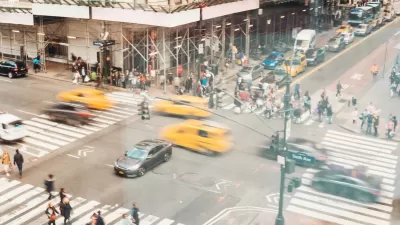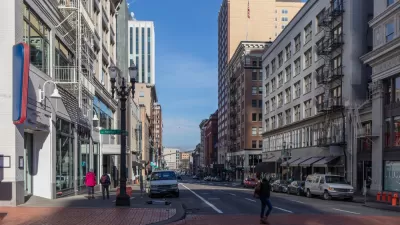As more autonomous vehicles hit the road and inevitably cause crashes, courts will have to contend with a complex web of responsibility when ruling on wrongful death cases.

An article from the law firm Pittman, Dutton, Hellums, Bradley & Mann, which specializes in wrongful death and car accident lawsuits, poses the question, "is [a traffic fatality] still wrongful death if the car is driving itself?"
So far, "self-driving cars cause more accidents (9.1 accidents per million miles driven) than vehicles involving a human driver (4.1 accidents per million miles driven)." And "[w]hen self-driving cars designed to reduce road carnage start to cause fatal accidents, concerns are raised regarding their safety and the issues of liability. Determining liability can be a sizable challenge, especially when you consider that many individuals and entities could play a role in an accident: the driver, car maker, technology provider, government, and local authorities."
The article goes on to define wrongful death from a legal perspective and explain how wrongful death lawsuits occur. When it comes to self-driving cars, the targets of lawsuits can include drivers, government, technology providers, and vehicle manufacturers.
In a widely publicized Arizona case, when an Uber vehicle using AV struck and killed a pedestrian, the courts and the National Transportation Safety Board (NTSB) placed the blame on several parties. "While it’s clear that a fatality caused by a wrongful act should be considered a wrongful death, the challenge comes about when we attempt to determine who is liable. For those who want precedents regarding liability, it’s unfortunate that big companies like Uber have resorted to out-of-court settlements. Consequently, there is limited guidance from court rulings regarding the issue." It remains to be seen how future lawsuits will play out and whether tech providers and manufacturers will take more responsibility for fatalities caused by their vehicles.
FULL STORY: Is It Still Wrongful Death If The Car Is Driving Itself?

Maui's Vacation Rental Debate Turns Ugly
Verbal attacks, misinformation campaigns and fistfights plague a high-stakes debate to convert thousands of vacation rentals into long-term housing.

Planetizen Federal Action Tracker
A weekly monitor of how Trump’s orders and actions are impacting planners and planning in America.

Chicago’s Ghost Rails
Just beneath the surface of the modern city lie the remnants of its expansive early 20th-century streetcar system.

Bend, Oregon Zoning Reforms Prioritize Small-Scale Housing
The city altered its zoning code to allow multi-family housing and eliminated parking mandates citywide.

Amtrak Cutting Jobs, Funding to High-Speed Rail
The agency plans to cut 10 percent of its workforce and has confirmed it will not fund new high-speed rail projects.

LA Denies Basic Services to Unhoused Residents
The city has repeatedly failed to respond to requests for trash pickup at encampment sites, and eliminated a program that provided mobile showers and toilets.
Urban Design for Planners 1: Software Tools
This six-course series explores essential urban design concepts using open source software and equips planners with the tools they need to participate fully in the urban design process.
Planning for Universal Design
Learn the tools for implementing Universal Design in planning regulations.
planning NEXT
Appalachian Highlands Housing Partners
Mpact (founded as Rail~Volution)
City of Camden Redevelopment Agency
City of Astoria
City of Portland
City of Laramie





























